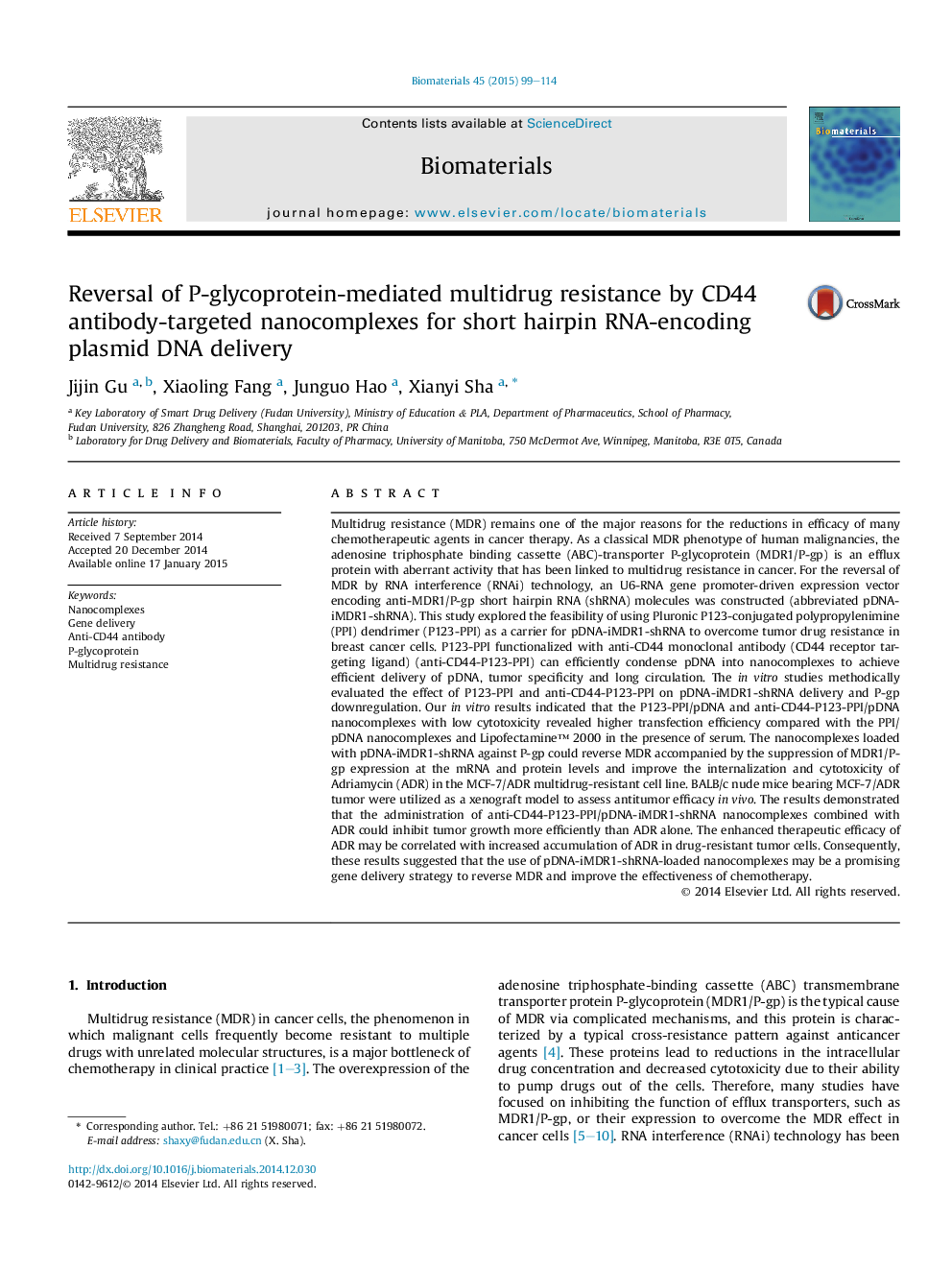| کد مقاله | کد نشریه | سال انتشار | مقاله انگلیسی | نسخه تمام متن |
|---|---|---|---|---|
| 5748 | 425 | 2015 | 16 صفحه PDF | دانلود رایگان |

Multidrug resistance (MDR) remains one of the major reasons for the reductions in efficacy of many chemotherapeutic agents in cancer therapy. As a classical MDR phenotype of human malignancies, the adenosine triphosphate binding cassette (ABC)-transporter P-glycoprotein (MDR1/P-gp) is an efflux protein with aberrant activity that has been linked to multidrug resistance in cancer. For the reversal of MDR by RNA interference (RNAi) technology, an U6-RNA gene promoter-driven expression vector encoding anti-MDR1/P-gp short hairpin RNA (shRNA) molecules was constructed (abbreviated pDNA-iMDR1-shRNA). This study explored the feasibility of using Pluronic P123-conjugated polypropylenimine (PPI) dendrimer (P123-PPI) as a carrier for pDNA-iMDR1-shRNA to overcome tumor drug resistance in breast cancer cells. P123-PPI functionalized with anti-CD44 monoclonal antibody (CD44 receptor targeting ligand) (anti-CD44-P123-PPI) can efficiently condense pDNA into nanocomplexes to achieve efficient delivery of pDNA, tumor specificity and long circulation. The in vitro studies methodically evaluated the effect of P123-PPI and anti-CD44-P123-PPI on pDNA-iMDR1-shRNA delivery and P-gp downregulation. Our in vitro results indicated that the P123-PPI/pDNA and anti-CD44-P123-PPI/pDNA nanocomplexes with low cytotoxicity revealed higher transfection efficiency compared with the PPI/pDNA nanocomplexes and Lipofectamine™ 2000 in the presence of serum. The nanocomplexes loaded with pDNA-iMDR1-shRNA against P-gp could reverse MDR accompanied by the suppression of MDR1/P-gp expression at the mRNA and protein levels and improve the internalization and cytotoxicity of Adriamycin (ADR) in the MCF-7/ADR multidrug-resistant cell line. BALB/c nude mice bearing MCF-7/ADR tumor were utilized as a xenograft model to assess antitumor efficacy in vivo. The results demonstrated that the administration of anti-CD44-P123-PPI/pDNA-iMDR1-shRNA nanocomplexes combined with ADR could inhibit tumor growth more efficiently than ADR alone. The enhanced therapeutic efficacy of ADR may be correlated with increased accumulation of ADR in drug-resistant tumor cells. Consequently, these results suggested that the use of pDNA-iMDR1-shRNA-loaded nanocomplexes may be a promising gene delivery strategy to reverse MDR and improve the effectiveness of chemotherapy.
Journal: Biomaterials - Volume 45, March 2015, Pages 99–114